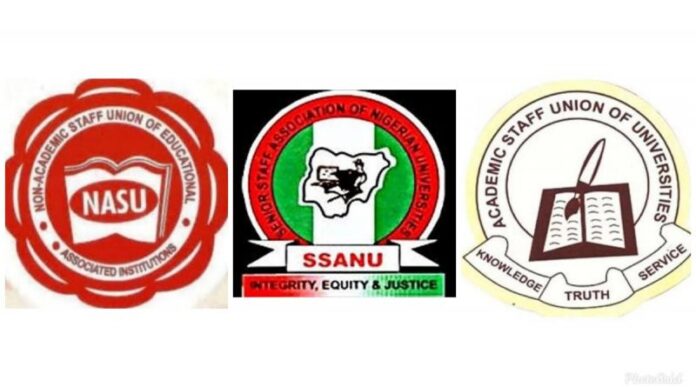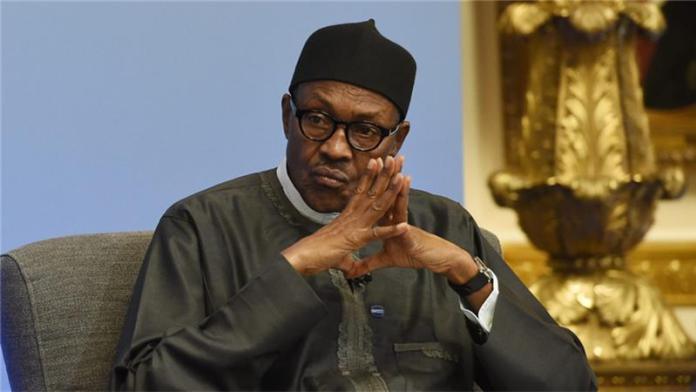Not Autonomy, But a Law to End University Strikes
“There is no greater treason than to do the right deed for the wrong reason” T.S. Elliot
INFOMEDIA – Early last October, I received an e-mail from a student on the prolonged and disastrous ASUU strike who said she “would be happy to know” which of the autonomies of the Universities was violated by the Federal Government with the introduction of the Integrated Payroll and Personnel Information System (IPPIS) anti-corruption salary scheme.
She proceeded to dissect the universities into an avalanche of units: the Governing Councils; the Vice-Chancellors, their Deputies, with Registrars; the Faculties, Departments, Institutes, with their teaching and research appendages; the Academic, Technical, Non-academic staff, and Students with their union executives; the medical centres, religious bodies such as the churches and mosques and so on.
If autonomy is an ideal of self-government, it certainly does not apply to the present-day Governing Councils of Nigerian Federal Universities which were constituted for the right deed but are used for the wrong reasons.
Autonomy is a significant and desirable step towards instituting a sustainable culture of scholarship; the unfettered search for truth and innovation, not tainted by financial dependence; a genuine patriotism-spurred competition where hard work is encouraged – all which are marred or absent in the existing Governing Councils.
Ab-initio, the equipoise of our current Governing Councils are tied to the ragged aprons of the political parties, motivated not by nationalism or Pan-africanism but nepotism, tribalism, religious bigotry and chop-chop corruption.
With the pro-chancellors at the helm, the powerful external members of the Governing Councils were not appointed to redeem the Universities for their knowledge and philanthropy to Nigerian Youths, like their counterparts in Europe and the United States, but are most often the Kaput Mortuum from previous elections, seeking monetary compensation from the ruling parties which grant them access to feed from the internal and external amalgamated revenues of each University.
These days, it is important to note that the externally generated revenue is not only a product of union strikes of ASUU, SSANU and NASU but increasingly involve the subterranean activities of external members of the Governing Councils, Vice Chancellors, lobbying agents hired by the Unions, government negotiators and gladiators of the National Assembly where inflating or deflating the so-called revitalization packages and budget paddings are the modus operandi.
In these times of long strikes where student lives no longer matter, with the potent and creative times of youth, purloined by expired politicians, council members in subterfuge with their political affiliates in the ruling parties can also manipulate the commencement and duration of university strikes for money to fatten their financial returns.
Therefore, the external members of the Governing Councils anchored to the political parties are a subset to the extended cesspool of corruption and dependence alien to autonomy, as the ruling class impoverishes Nigerian students and the nation.
On the other hand, the internal members of the Governing Councils who directly represent the university in Council can best be understood as the proverbial head that the Igbo people say cannot be ignored for the sake of padding the buttocks, which is composed of the dotty university workers and bemused university students.
Led by the Vice Chancellors, the internal members of council include the Deputy Vice Chancellors with registrars as secretaries to council, representatives of the University senate, congregation, the Unions, with ASUU not only serving as the general vanguard of workers, but of particular strategic significance to the appointment and survival of any Vice Chancellor.
All the internal members of Council are the products of a most pungent election campaign and a bitter power struggle camouflaged by various forms of bribery which may involve money, employment, promotions, sex escapades, admission racketeering, land pledges to outright violence. Also inclusive are ethnic chauvinism, state-ism, tribalism, religious bigotry and personal rivalry emanating from the darkest armpits of our Universities.
How could these men and women have invested so heavily – even staking their lives – if not for the bountiful returns they expect to reap at the Governing Councils from the externally and internally generated revenues, damming all the contradictory consequences of social decay, that for many years has bedeviled the Universities, student lives and the welfare of university workers?
At present, these scallywags have their eye and expectation on the newly “won” Earned Allowances of their fellow workers, with frenzied appetites for the billions of Naira proposed for the revitalization of Universities expected to arrive anytime from now.
Among the internal members, the position of Vice Chancellor remains the most wanted, costly and lucrative. As chief host to Council and the Universities, he is responsible for the management of the internal and external revenues, while overseeing all aspects of University business.
Read Also:
Is it a wonder that over 30 Nigerian professors recently contested for the position of Vice Chancellor at the Michael Okpara Federal University of Agriculture, Umudike in Abia State? Similar gigantic numbers contested for the same position in other Federal and State Universities.
In developed nations, most research professors at the summit of their creativity would have considered the position of Vice Chancellor a death sentence and rejected it accordingly. The process of appointing a Vice Chancellor is another golden opportunity for the gurus of Council and their party affiliates to fatten their wallets through primitive accumulation.
Through chicanerous interviews of the large pool of desperate men, with money as the dependent variable, the candidates with the largest purse emerge to be presented to the Visitor for appointment as Vice Chancellor.
At last, a close scrutiny for the elusive autonomy requested by the curious University student, frustrated into dormancy by a ten-month strike has only revealed its sclerotic absence in the Governing Councils, and by extension in all the appendages of the Universities dissected by our brooding student.
Most loathsome is the conspicuous absence of student representation in the University Governing Councils in a democratic Nigeria where the student population – post graduates and undergraduates – out-number those of Academic and Non-Academic workers by over a factor of ten.
Also, no autonomy exists in the dispensation of research funds from the nationally applauded TETfund as researchers are given their federal grants personally in bank cheques, in contrast to developed nations where research materials and infrastructure are supplied to researchers by autonomous national bodies.
Of course, no autonomy on the average should be expected in the election of the local branches of ASUU, NASU or SANU and the Student Unions which are dependent to the Vice Chancellors or their agents who control them through granting various privileges for primitive accumulation to the lucky and chosen proletarian.
In striving to restructure the Governing Councils and commence the creation of a genuine and patriotic University autonomy with the welfare of students at the nucleus, Nigerian University students have no choice but to demand and obtain proportional representation in the present parasitical Governing Councils who acquired the habit and counter-culture of loading their wallets with public funds under the subterfuge of managing the lives of students.
Enough of the prejudice that students are children and have no rights to determine the utilization of the internal and external revenues allocated in their name and welfare, in the construction of their classrooms and hostels, and other infrastructures that determine the quality of their lives!
The proportional membership of students in the restructured Governing Councils may, through student input in the deliberations, influence the duration booty and commencement of strikes.
It will compel the University management towards a just monitoring and utilization of the amalgamated University revenues in the building and maintenance of infrastructure, the modernization of laboratories with standard instrumentation, classrooms, medical centers, hostels and the environment because they predominantly effect the general welfare and learning culture of students.
The business of construction and developing the Universities will no longer be alienated from the students, but becomes inseparably their responsibility to improve it for future generations of their fellow students. In a democracy, the students should be the most important stakeholders for building the universities.
Also, proportional representation of students in the University Governing Councils will bring justice not only closer to students but the University community in the present surge of moral decadence, promotion and employment racketeering, drug and alcohol abuse, the sex-and-money-for-grade counter culture, all of which inhibit the pursuit of academic excellence and promote underdevelopment.
Our inquisitive student is not to be blamed in her bemusal due to the absence of all, but one autonomy: the chop-chop autonomy.
The Vice Chancellors and their Councils, having exhausted their internally generated revenues from students need to collect more from the resumption of Universities to maintain their profligate living standards despite the lack of preparation to secure the life of students over the second surge of the COVID-19 pandemic. The unions – ASUU, SSANU and NASU, in their dotted judgment and pretence to patriotism also need the students to resume for their own financial subsistence.
Only the students – the future of the nation – bored at home and desperate to return to their dilapidated campuses under the deadly siege by the Corona Virus have no choice but to return, and continue to be victims of an all pervasive chop-chop Autonomy.
It is time for a caring government, serious about the future of the Nigerian people – the youths – to restructure the University Governing Councils, make them non-partisan and bring to an end this chop-chop autonomy that is based on alliances of union agents, council agents and national party men and bring forth as an imperative a new law that puts university workers at the same level as workers under compulsory services prohibited from strikes through the National Assembly, under a carefully monitored but sustainable funding to end all University strikes now.
Professor Onwubiko is the Head, Department of Biochemistry. University of Nigeria, Nsukka.



























